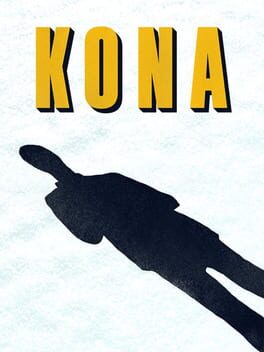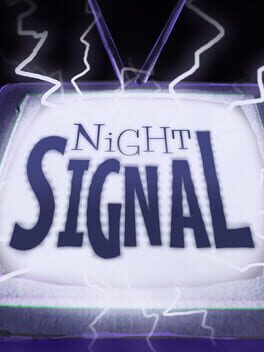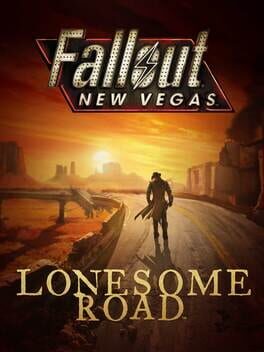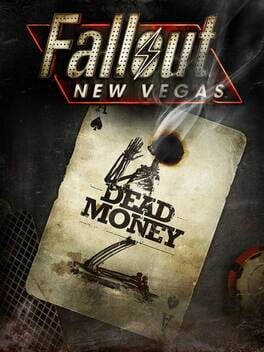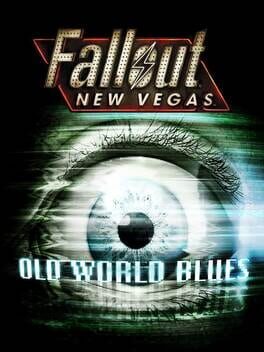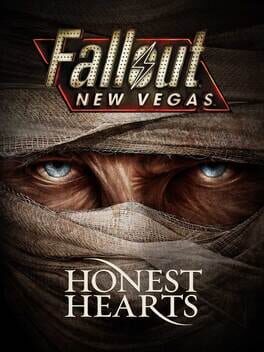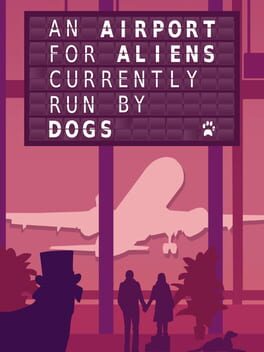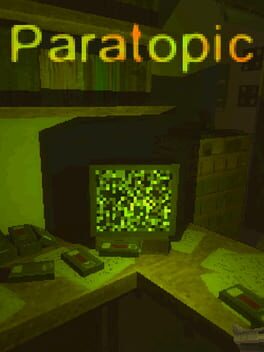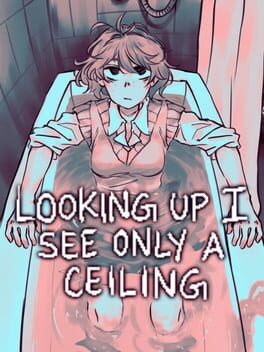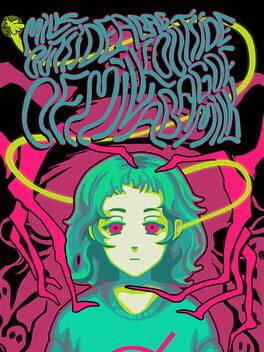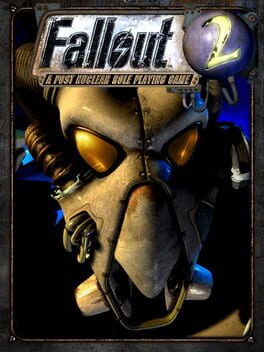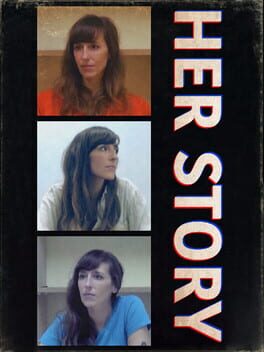ValWhenVal
2017
This is a very peculiar game for me because I've tried on two occassions for five years to finish it, and I never have. Despite this, I would still recommend it.
As a Canadian, I do love the setting. It's familiar and yet, because it's set in Quebec, it's unique. The gameplay loop is fairly satisfying, the game is visually great, and it feels good to explore the world.
Unfortunately, there's no hook for the story. It seems like there shuold be. You get stranded in town due to some freak accident, there's some paranormal activity, political intrigue, and so on, but... nothing really sticks, at least for me. I don't really care to know, so I've never got to the end.
That being said, it's worth a try.
As a Canadian, I do love the setting. It's familiar and yet, because it's set in Quebec, it's unique. The gameplay loop is fairly satisfying, the game is visually great, and it feels good to explore the world.
Unfortunately, there's no hook for the story. It seems like there shuold be. You get stranded in town due to some freak accident, there's some paranormal activity, political intrigue, and so on, but... nothing really sticks, at least for me. I don't really care to know, so I've never got to the end.
That being said, it's worth a try.
2022
It's a neat little game, also short (under an hour). The concept is very interesting — you're stuck in the TV room flicking through channels in the dead of night, trying to find channels that are, I suppose, haunted, cursed, or something. Unfortunately, doing so is kind of tedious, and takes away from what is otherwise really well done shorts. Further, combat is tacked on, and takes away from being able to enjoy what the game is good at. I died towards the end, and had zero motivation to finish it.
Thankfully, the developers took what they learned here and made Home Safety Hotline, which is much better and concise.
Thankfully, the developers took what they learned here and made Home Safety Hotline, which is much better and concise.
2010
There are very few games out there that immerse you in its world like New Vegas. Whereas Fallout 3 did this by creating interesting set pieces, memorable events, and a satisfying gameplay loop, New Vegas does this instead by, and arguably does it better, immersing you in its geopolitics, man's lust for power, and taxes (or anti-taxes, if you so choose).
The New California Republic, which is basically the re-emergence of the United States of America before the apocalypse, is starting to show signs of decline as it struggles to maintain its presence in and around Vegas, effectively buckling under its own pressure.
Keep in mind, this game first started development when the last ounce of support for America's war in Iraq had been spent and the American economy was at its worst in generations. No, this game is not an allegory for any of this, because allegories are stupid, but it's inevitable that those events shaped New Vegas's central themes.
When does a nation become too far gone? How can a civilization stuck in the past effectively confront new challenges? What does freedom mean when not everyone is free?
Most games, movies, or books will ask vague questions and then try to answer them. Every now and again, a masterpiece will come along with enough humility to know that it doesn't know the answers to its own questions, but that the questions need to be asked regardless.
The New California Republic, which is basically the re-emergence of the United States of America before the apocalypse, is starting to show signs of decline as it struggles to maintain its presence in and around Vegas, effectively buckling under its own pressure.
Keep in mind, this game first started development when the last ounce of support for America's war in Iraq had been spent and the American economy was at its worst in generations. No, this game is not an allegory for any of this, because allegories are stupid, but it's inevitable that those events shaped New Vegas's central themes.
When does a nation become too far gone? How can a civilization stuck in the past effectively confront new challenges? What does freedom mean when not everyone is free?
Most games, movies, or books will ask vague questions and then try to answer them. Every now and again, a masterpiece will come along with enough humility to know that it doesn't know the answers to its own questions, but that the questions need to be asked regardless.
Lonesome Road is Chris Avellone's attempt at a magnum opus, and it's honestly one of gaming's biggest disasters.
I'm going to contrast this to Knights of the Old Republic II because Avellone was involved in it, especially Kreia, and Lonesome Road is clearly a reiteration of that story (that's not a criticism).
First, let's get the biggest issue out of the way: the Courier's backstory. At first glance, this isn't necessary a bad thing. Yes, we all want a blank state RPG character to work with, but Fallout has never had one. New Vegas, ironically, is the closest that the franchise has gotten to having a blank state player character. The issue, however, is that the Courier is not treated as a character per se all game from start to finish. There are brief mentions of the Courier's backstory, such as Johnson Nash's comments in Primm, but it's fairly innocuous. Meanwhile, in KOTOR II, it is made clear from the beginning that the player character is an actual character, The Exile, with a fleshed out backstory, actions, relationships, and so on. Obviously, you can change the Exile's trajectory, roeplay as good or evil and whatever, but the story is fundamentally based on the fact that the Exile is a real character, and not just the player's blank slate to play the game. This fact shapes much of the story and the characters in it. In fact, the premise of the plot is built on regaining The Exile's memories, and builds up to the climax. Lonesome Road, meanwhile, decides that the Courier both built and destroyed a sprouting civilization. While you can sort of deny this to Ulysses, it's off-handed, and effects nothing. Not only is this deeply frustrating, but it's lazy writing. It's like if Pippin showed up at Gondor and Denethor freaks out at him because, well, he razed a village to the ground and had sex with Denethor's mom — oh, and all of this happened off-screen, and with little to no build up or context. Sure, why not? Dumb.
Ulysses — an incredibly shallow character. People criticize Ulysses because's trying to be a third way, holier than thou patronizing rebel. This isn't really the problem. He's Avellone's attempt at a war vet with PTSD that's stared into the abyss a little bit too long, so that part is okay with me. In KOTOR 2, Kreia basically did the same thing. Kreia, however, was trying to mentor the Exile, and in the end, while Kreia did talk about her own ideals, it was rooted in a tragedy that the player has come to learn, appreciate, and for which the story, the motivations of your companions, and the protagonist, The Exile, is predicated upon. Ulysses, however, doesn't try to teach the player or the Courier much of anything beyond a questionable tragedy that was supposedly triggered by the Courier, and... again, I do not care. There is no reason to. Why would anyone care after playing 20-50 hours without hearing about this nonsense. Because of this, and while this was not the intent, Ulysses' worldview really can be summed up as, the wise man bowed his head solemnly and spoke: "theres actually zero difference between good & bad things. you imbecile. you fucking moron"
Ultimately, this is a story that really only exists to tell you things about other things. Things I'm not invested in, nor ever will be. It's self-indulgent storytelling.
I'm going to contrast this to Knights of the Old Republic II because Avellone was involved in it, especially Kreia, and Lonesome Road is clearly a reiteration of that story (that's not a criticism).
First, let's get the biggest issue out of the way: the Courier's backstory. At first glance, this isn't necessary a bad thing. Yes, we all want a blank state RPG character to work with, but Fallout has never had one. New Vegas, ironically, is the closest that the franchise has gotten to having a blank state player character. The issue, however, is that the Courier is not treated as a character per se all game from start to finish. There are brief mentions of the Courier's backstory, such as Johnson Nash's comments in Primm, but it's fairly innocuous. Meanwhile, in KOTOR II, it is made clear from the beginning that the player character is an actual character, The Exile, with a fleshed out backstory, actions, relationships, and so on. Obviously, you can change the Exile's trajectory, roeplay as good or evil and whatever, but the story is fundamentally based on the fact that the Exile is a real character, and not just the player's blank slate to play the game. This fact shapes much of the story and the characters in it. In fact, the premise of the plot is built on regaining The Exile's memories, and builds up to the climax. Lonesome Road, meanwhile, decides that the Courier both built and destroyed a sprouting civilization. While you can sort of deny this to Ulysses, it's off-handed, and effects nothing. Not only is this deeply frustrating, but it's lazy writing. It's like if Pippin showed up at Gondor and Denethor freaks out at him because, well, he razed a village to the ground and had sex with Denethor's mom — oh, and all of this happened off-screen, and with little to no build up or context. Sure, why not? Dumb.
Ulysses — an incredibly shallow character. People criticize Ulysses because's trying to be a third way, holier than thou patronizing rebel. This isn't really the problem. He's Avellone's attempt at a war vet with PTSD that's stared into the abyss a little bit too long, so that part is okay with me. In KOTOR 2, Kreia basically did the same thing. Kreia, however, was trying to mentor the Exile, and in the end, while Kreia did talk about her own ideals, it was rooted in a tragedy that the player has come to learn, appreciate, and for which the story, the motivations of your companions, and the protagonist, The Exile, is predicated upon. Ulysses, however, doesn't try to teach the player or the Courier much of anything beyond a questionable tragedy that was supposedly triggered by the Courier, and... again, I do not care. There is no reason to. Why would anyone care after playing 20-50 hours without hearing about this nonsense. Because of this, and while this was not the intent, Ulysses' worldview really can be summed up as, the wise man bowed his head solemnly and spoke: "theres actually zero difference between good & bad things. you imbecile. you fucking moron"
Ultimately, this is a story that really only exists to tell you things about other things. Things I'm not invested in, nor ever will be. It's self-indulgent storytelling.
Dead Money is tragically one of Obsidian’s most flawed works. It has all the makings of a masterpiece, but sabotages itself at every turn.
Let’s start with the premise: the Courier is kidnapped by Father Elijah, the former leader of the local Brotherhood of Steel chapter, and taken to the Sierra Madre, home of untold riches and glory. The Courier, along with three other of Elijah’s hostages, must complete a series of tasks to gain entry to the Sierra Madre and, then, its vault, which contains a number of treasures. The maps are polluted with traps, deadly gases, and violent patrols, which helps set the tone.
The characters, story, and themes are honestly some of the best. Father Elijah, a figure already looming over parts of the base game and Old World Blues, is one of Fallout’s greatest antagonists, up there with The Master for sure. The tragic triangle between Vera, Dean, and Sinclair is really wonderful, too.
And then there’s the theme, which is all about letting go and moving on. Dead Money really hits a home run every time on this. Every character, as you’d expect, is centred around something in their life that they need to let go of, even the Sierra Madre itself.
For whatever reason, Obsidian wasn’t content with having a masterpiece, and decided to insert the most mind numbing awful combat and gameplay loop into Dead Money. It actually made me miss Old World Blue’s gameplay which is saying something.
How this came about will always be a mystery to me, but I guess I need to let it go.
Let’s start with the premise: the Courier is kidnapped by Father Elijah, the former leader of the local Brotherhood of Steel chapter, and taken to the Sierra Madre, home of untold riches and glory. The Courier, along with three other of Elijah’s hostages, must complete a series of tasks to gain entry to the Sierra Madre and, then, its vault, which contains a number of treasures. The maps are polluted with traps, deadly gases, and violent patrols, which helps set the tone.
The characters, story, and themes are honestly some of the best. Father Elijah, a figure already looming over parts of the base game and Old World Blues, is one of Fallout’s greatest antagonists, up there with The Master for sure. The tragic triangle between Vera, Dean, and Sinclair is really wonderful, too.
And then there’s the theme, which is all about letting go and moving on. Dead Money really hits a home run every time on this. Every character, as you’d expect, is centred around something in their life that they need to let go of, even the Sierra Madre itself.
For whatever reason, Obsidian wasn’t content with having a masterpiece, and decided to insert the most mind numbing awful combat and gameplay loop into Dead Money. It actually made me miss Old World Blue’s gameplay which is saying something.
How this came about will always be a mystery to me, but I guess I need to let it go.
Old World Blues really encapsulates Obsidan’s, and especially Chris Avellone’s, lack of restraint. I don’t mind that the opening is 15 minutes of a dialogue. What I do mind, however, is that the rest of the content is 40 more minutes of dialogue padded with a few hours worth of unnecessary fetch quests, bullet sponges, and a boring map.
Many people love the writing and humour in OWB. Personally, I think it’s just okay. It would’ve been more effective if the content itself was more tuned.
Behind the horrible gameplay and quirky humour is the age of old question: has science gone too far? Specifically, where do we draw the line on scientific progress. The backset to this is, ironically, a bombed out mountain where scientists (well, their brains) have been fighting for 200 years in stalemate.
Unfortunately, the theme becomes fairly muddied in between the humour, drawn out dialogue, and horrid quests.
Like Dead Money, Old World Blues would’ve been better served with minimal combat and a more refined map.
Many people love the writing and humour in OWB. Personally, I think it’s just okay. It would’ve been more effective if the content itself was more tuned.
Behind the horrible gameplay and quirky humour is the age of old question: has science gone too far? Specifically, where do we draw the line on scientific progress. The backset to this is, ironically, a bombed out mountain where scientists (well, their brains) have been fighting for 200 years in stalemate.
Unfortunately, the theme becomes fairly muddied in between the humour, drawn out dialogue, and horrid quests.
Like Dead Money, Old World Blues would’ve been better served with minimal combat and a more refined map.
“For many of us, the road is a difficult one, but the path is always there to follow.”
Looming over Honest Hearts is Joshua Graham, a character musing on rebirth and hellbent on revenge. He’s one of Fallout’s greatest characters, yet tragically doesn’t play a large enough role. Unfortunately, we are largely left with a bland map, scant characters, and uninspiring quests. Thankfully, at least, we are given a taste of newfound culture, religion, and language in the post-apocalypse that doesn’t feel forced. Additionally, there is a fantastic side-story stuck away in caves that explores the origins of the DLC’s mythical Father in the Cave.
Honest Heart’s exploration of revenge is, ultimately, rather shallow. While Joshua Graham is an absolutely phenomenal character, it’s not enough to save this from being mediocre content.
Looming over Honest Hearts is Joshua Graham, a character musing on rebirth and hellbent on revenge. He’s one of Fallout’s greatest characters, yet tragically doesn’t play a large enough role. Unfortunately, we are largely left with a bland map, scant characters, and uninspiring quests. Thankfully, at least, we are given a taste of newfound culture, religion, and language in the post-apocalypse that doesn’t feel forced. Additionally, there is a fantastic side-story stuck away in caves that explores the origins of the DLC’s mythical Father in the Cave.
Honest Heart’s exploration of revenge is, ultimately, rather shallow. While Joshua Graham is an absolutely phenomenal character, it’s not enough to save this from being mediocre content.
2018
There’s a lot of games that invoke surrealism. While doing so, they tell you that what’s happening is surreal, and then why that’s connected to its narrative. Paratopic, however, is one of the few that understands that the surreal is not meant to explain or instruct. It is meant to illicit a feeling.
For example, talking to the cashier at the gas station about a store all about milk. Some people will try to analyze its meaning, or maybe its relevance to the narrative, or the symbolism of milk. All that is bullshit, and ultimately will mislead you Feel more, think less. Things will make more sense.
For example, talking to the cashier at the gas station about a store all about milk. Some people will try to analyze its meaning, or maybe its relevance to the narrative, or the symbolism of milk. All that is bullshit, and ultimately will mislead you Feel more, think less. Things will make more sense.
Obviously inspired by the Milk series, it's a game that seems to knows its limitations, and knocks the pacing out of the park. However, the other aspects of the game are just okay or medicore. Unlike Milk, I felt no attachment to the character, and the other character is just sort of there, almost shoe-horned in.
That being said, I do look forward to dev's future works, as it's still an admirable game.
That being said, I do look forward to dev's future works, as it's still an admirable game.
Whereas the first game explored mental illness through surrealism, this one grounds the experience more in reality relatively speaking. I do appreciate this for a number of reasons, however, the game doesn’t make up for the lack of surrealism, i.e. the original’s appeal, in other ways, and instead sometimes feels as if you’re making your way through a glorified young adult visual novel. Regardless, the handling of its subject matter is just as good, and its use of humour is tactful and well done.
2023
1998
1997
The original Fallout is one of the greatest takes on the post-apocalypse in any media — its writing and characters are some of the best, and it's worldbuilding is revolutionary.
Unlike the rest of the series, Fallout 1 is unapologetically bleak, harsh, and brutal. From the moment you leave your vault, throughout our journey in what was once California, all the way to your return to your home vault, there is virtually no reprieve from the bleakness of post-nuclear war America. In fact, it only accelerates all the way to the very end.
Fallout 1 is also home to one of the greatest villains in gaming. The Master's presence slowly reveals itself over the course of the game until its climax. With The Master, we are introduced to a reoccuring theme in the series: an individual, or group of individuals, obsessed with not only preventing another nuclear fallout or similar event, but seemingly absolve America of its sins — the "wrath and folly of a bygone generation," as described in another entry — an obsession ironcially leading to a new set of sins.
If you're coming from the 3D games, like myself, there's a few things to keep in mind. The retrofuturism of the series is a lot more subtle. Whereas Bethesda leans into so much (which I love, mind you) it almsot turns into retroism, the original Fallout uses it a lot more subtly. Yes, this is a CRPG from 30 years ago, so it's mechanically clunky, sometimes obtuse, and the character creation requires a full on guide if you don't want to brick your first playthrough. But it's absolutely worth playing.
Unlike the rest of the series, Fallout 1 is unapologetically bleak, harsh, and brutal. From the moment you leave your vault, throughout our journey in what was once California, all the way to your return to your home vault, there is virtually no reprieve from the bleakness of post-nuclear war America. In fact, it only accelerates all the way to the very end.
Fallout 1 is also home to one of the greatest villains in gaming. The Master's presence slowly reveals itself over the course of the game until its climax. With The Master, we are introduced to a reoccuring theme in the series: an individual, or group of individuals, obsessed with not only preventing another nuclear fallout or similar event, but seemingly absolve America of its sins — the "wrath and folly of a bygone generation," as described in another entry — an obsession ironcially leading to a new set of sins.
If you're coming from the 3D games, like myself, there's a few things to keep in mind. The retrofuturism of the series is a lot more subtle. Whereas Bethesda leans into so much (which I love, mind you) it almsot turns into retroism, the original Fallout uses it a lot more subtly. Yes, this is a CRPG from 30 years ago, so it's mechanically clunky, sometimes obtuse, and the character creation requires a full on guide if you don't want to brick your first playthrough. But it's absolutely worth playing.
2015
Her Story is a great experience. Your progression in the game is not barred whatsoever, and while some people have criticized it being too easy, I would say that’s not a criticism. In my opinion, while the mechanics of the game are innovative, the real draw is how easily the game sucks you into its narrative and characters. All of which, mind you, is exclusively told by a single individual who is also your typical unreliable narrator. Despite this, you are drawn to the main characters, their back stories, and eventual fates. Ultimately, while I do wish there was something a little more to Her Story, it really is a phenomenal game.
